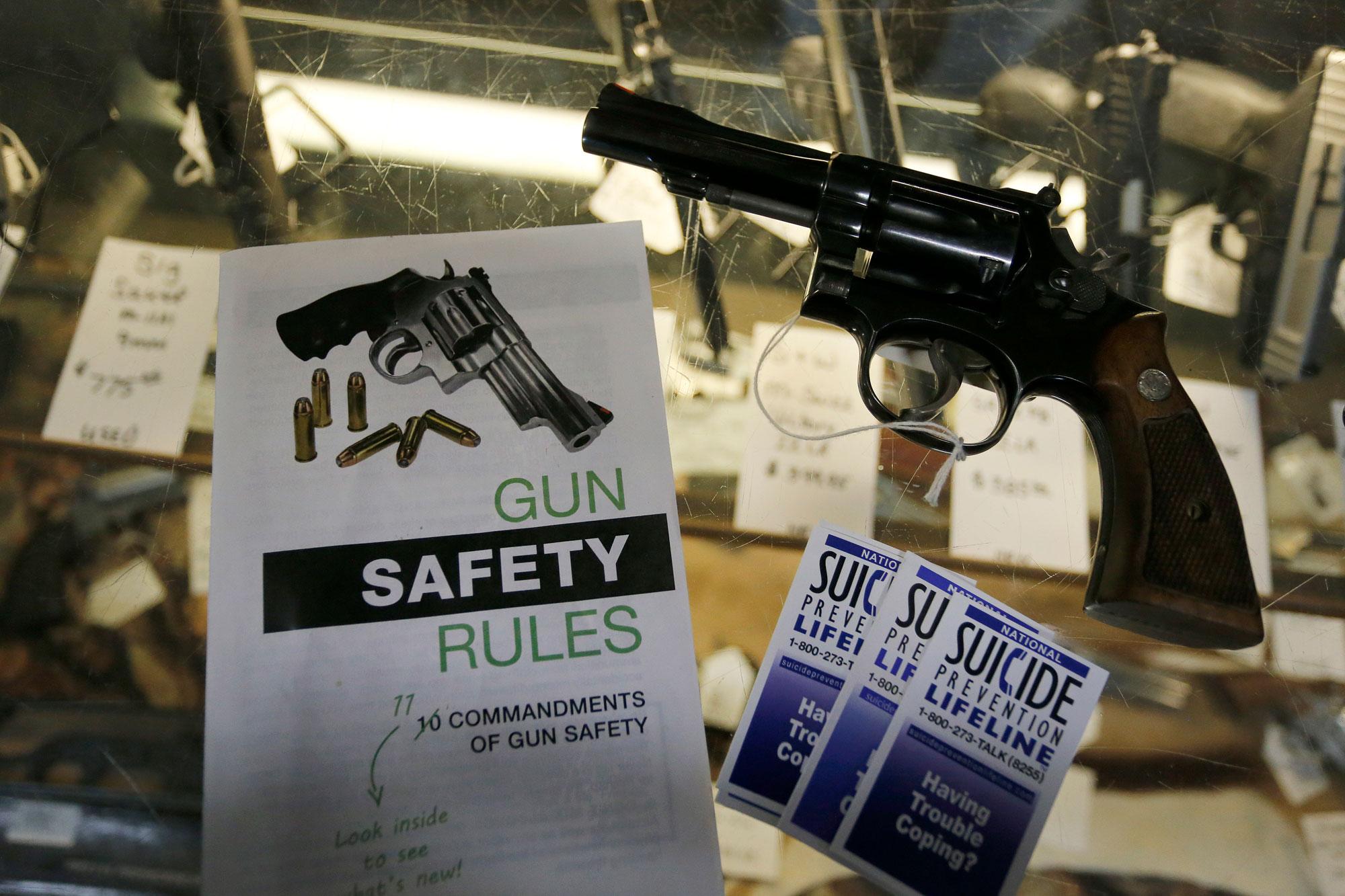
In the wake of the weekend’s mass shootings, national lawmakers, including U.S. Sen. Michael Bennet, have called for the passage of laws requiring background checks on all gun purchases.
Bennet, who represents Colorado, said in a tweet Monday that Senate Majority Leader Mitch McConnell was “single-handedly blocking progress” on “bipartisan solutions,” such as background checks.
Colorado lawmakers passed legislation requiring background checks on all private sales in 2013, months after the Aurora theater shooting and Newtown school shooting. Lawmakers also approved a ban on ammunition magazine sizes over 15 rounds.
Since Colorado instituted private sale background checks, the Colorado Bureau of Investigation reports 2,065 private sales have been denied. That number includes denials at gun shows, a loophole closed after Columbine. CBI data doesn’t breakdown the reasons for denial for private sales. Sales of any kind, private or otherwise, are most commonly denied because the purchaser has a drug or assault arrest or conviction.
The 2013 measures were so controversial that they led to the recall of two state senators.
John Morse, now a certified public accountant, was one of them. Morse, a Democrat who represented Manitou Springs and eastern Colorado Springs, voted in favor of the laws.
“There’s plenty more work to do,” Morse said. “Colorado has obviously taken way more steps than other places have, but there’s still more to do in Colorado. And of course there’s more to do every place else.”
Still, Morse said that in many cases mass shooters are able to purchase guns legally. For instance, James Holmes, the perpetrator in the Aurora theater mass shooting, did not have a criminal record, and purchased his arms legally. The background check law would not have prevented him from obtaining firearms.
But Morse hoped the limit on the size of magazines will have an impact. Holmes used a 100-round magazine the night of the shooting, as did the gunman in the Dayton, Ohio, mass shooting over the weekend. With smaller magazines, Morse said, “the shooter has to reload more frequently.” That could slow down a shooter, advocates say.
David Kopel, a constitutional expert on firearms with the Independence Institute who has brought a lawsuit on behalf of sheriffs over the 2013 laws, said there’s no evidence ammunition magazine limits prevent mass shootings. Gun control supporters often float that theory, but “they can’t actually support that,” Kopel said.
Gun control supporters point to the 2011 shooting in Tucson that injured U.S. Representative Gabrielle Giffords. The shooter was tackled while reloading his high-capacity magazine. But Kopel says examples like that are flawed, because the shooter was able to switch the magazine before the gun jammed.
Still, Kopel said Colorado’s ban doesn’t make sense, because many common firearms use 17-round magazines, including those used by law enforcement.
Kopel said many gun-rights advocates are open to reasonable gun-control measures, but he faults the approach many lawmakers take, “with laws that are difficult and unfair to try to comply with.”
He said these poorly drafted laws end up affecting the reasonable actions of gun owners. He pointed to the requirement that a person get a background check if they borrow a gun from someone over a certain amount of time.
Both of the 2013 Colorado gun bills faced legal challenges. The lawsuit brought by Kopel on behalf of about three-dozen state sheriffs was thrown out by the U.S. Court of Appeals for the 10th Circuit. But another lawsuit challenging the magazine limits is in front of the Colorado Supreme Court.
The Colorado Bureau of Investigations has approved 161,490 firearms transactions through the first half of this year.
Purchases are down 7 percent year-over-year, and have fallen each year President Donald Trump has been in office, the first back-to-back annual declines in recent Colorado history.
In general, gun-buying spikes following mass shootings, over worries about increased regulation. The last buying binge in Colorado followed the Parkland, Florida, shooting, but it was short lived. Gun stores said buyers don’t fear that Republicans will pass new gun laws, so they don’t feel compelled to run out and buy guns.
Legislators in Colorado have suggested bills requiring safe storage and purchase waiting periods could be introduced during the next session, which begins in January. That, coupled with a presidential election year, could drive up gun sales.
Editor's Note: The headline on this story was updated to clarify the connection between Colorado gun law loopholes and denied sales.









